Democratic Republic Of Congo
Uncertainty remains over plans on the national funeral of the Democratic Republic of Congo’s long-time opposition leader Etienne Tshisekedi, who died last month in Belgium at the age of 84.
This comes after his family announced that his body will not be repatriated this weekend as planned, after the family and the authorities could not agree on a burial site in the capital Kinshasa.
Family and members of the party he founded the Union for Democracy and Social Progress (UDPS) say they wanted the body to be buried at the party’s headquarters, while Kinshasa authorities proposed that he be buried at the Gombe cemetery in the city centre.
Kinshasa’s governor called off the construction that had already begun at the Gombe cemetery, following the family’s announcement.
Many of his supporters also say the site proposed by the authorities is not befitting of Tshisekedi’s stature.
“For us at UDPS, which is the political family of Etienne Tshisekedi we have no problem with his biological family, since one of his sons is a member of the UDPS leadership. But when the party’s secretary general gave the city’s governor four choices for burial site, the governor chose to go behind our back and negotiated directly with the family. And as you very well know, when Tshisekedi was still alive, he would listen and consult party members rather than his biological family. That’s also how the biological family decided to handle this. After officially announcing that the body will be repatriated on March 11, there were protests throughout the country and the family could not go against the people’s wishes and that’s the reality,” said UDPS spokesperson Augustin Kabuya.
UDPS is part of an opposition coalition struggling to hold its ground against president Joseph Kabila, who has ruled Congo since 2001. Kabila stayed in power after his mandate expired in December, sparking unrest and fears of civil war.
Tshisekedi led the bloc during negotiations in December that resulted in a deal obliging Kabila to step down after elections that must be held this year.
But Tshisekedi’s death also leaves opponents of Kabila seriously weakened in their bid to force Kabila to quit power.
Last week, the main opposition coalition said it had named the son of its late leader Tshisekedi to succeed him, but some within the opposition rejected the choice.
Felix Tshisekedi was chosen to lead the alliance of some of the country’s largest opposition parties, which was thrown into crisis by the death of his father.
Analysts say that Tshisekedi death and his son succeeding him as the leader of the coalition has also left the opposition to Kabila divided, which has played into his hands.
But his supporters deny any divisions within the coalition and say the challenges they face are minor.
“There is no crisis within the coalition, what I can tell you is that the issue is that of dynamics. There may be two or three individuals who have issues (with the succession), but all other members are united and will come together at our next meeting and you will see all the major players present at the meeting,” said Kabuya.
Personal rivalries have long undermined Congo’s myriad opposition parties, strengthening the hand of Kabila, who weathered violent street protests last year to stay in power.
“We ask politicians to stop their distractions. Our dear father, Etienne Tshisekedi, whose picture I am looking at right now, left us with guidelines to follow. These guidelines to follow are contained in the December 31st agreement,” said one UDPS supporter Lutshika Leveski.
Meanwhile, negotiations on implementing the December deal had already stalled amid wrangling over the composition of the power-sharing government, rendering the prospect of an election by the end the year increasingly remote.
“The more divisions within the opposition deepen, and the more time passes, then the more difficult it will be to accomplish what was agreed in the accord of December 31, 2016. Meaning having elections at the end of the year that would allow a transfer in power. It allows the ruling majority to stay in power because they will say, who are we going to negotiate with? So it leaves the ruling majority free to stay in power and do whatever they want, and that’s very dangerous,” said political analyst Tshitenge Lubabu.
Kabila, the country’s leader since 2001, remained in power when his constitutional mandate expired on Dec. 19, sparking unrest that stoked fears of Congo sliding back into the anarchy and civil war of the turn of the century.




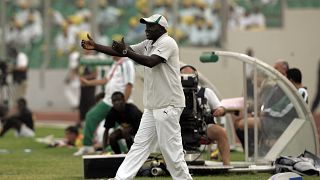
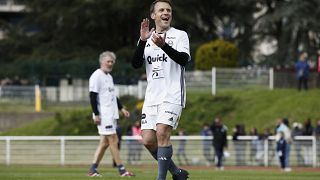
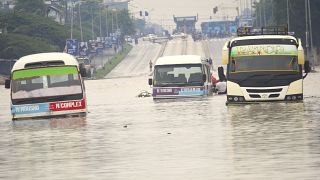
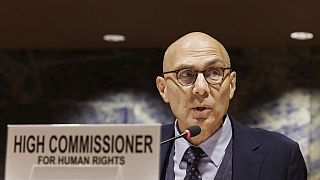
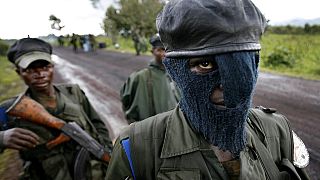
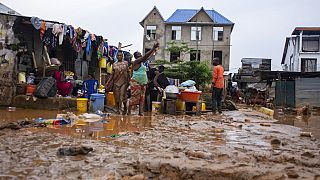
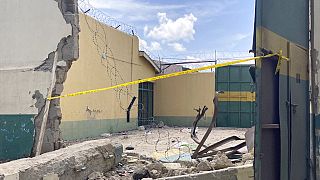
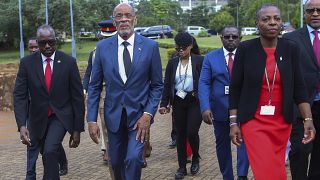
01:38
Sexual violence in conflict increased by 50% in 2023, says UN
Go to video
DR Congo names first female prime minister amid escalating violence
01:19
DR Congo’s conflict-driven hunger crisis worsens as violence in east surges
01:41
Landslide in Rwanda causes devastation in bordering Congo
01:46
ICRC chief urges warring parties in the eastern DRC to exercise constraint
01:12
Is Rwanda opposed to an AU-backed SADC operation in eastern DRC?